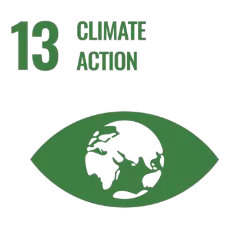Turning wasteinto a world of possibilities.
into a world of
possibilities.
Meet the Catalyst: The Black Soldier Fly
The Black Soldier Fly

Nutrition
High in protein (≈50%), amino acids, and healthy fats.
Conversion
Consumes organic waste up to 10x faster than composting, reducing waste volume by 70% while producing valuable byproducts.
Sustainable
Requires minimal resources, lowers carbon footprint, and supports circular economy solutions for sustainable agriculture.
& Growth
Naturally rich in lauric acid, supporting immunity, digestion, and overall animal performance.
High protein feed
for modern farming
BSF-based feed requires minimal land, water, and energy, reducing deforestation and overfishing. The larvae efficiently converts organic waste into high-quality protein and fats, lowering reliance on resource-intensive crops and wild fish stocks.
With a low carbon footprint and circular production process, it supports a more resilient, eco-friendly food system for livestock, poultry, aquaculture, and pet nutrition.



Aligning with the
UN Sustainable
Development Goals





Healthy Nourishment
Healthy Animals






Contact Us
Press Release
waste: How Greensect is pioneering insect farming in
Bangladesh
FAQs
Black Soldier Fly (BSF) larvae are the early stage of the Black Soldier Fly's life cycle, around 5 days after they hatch from the eggs. They start growing rapidly as they feed at larval stage. As a key part of their life cycle, this is the most active growth phase, where they gain the energy needed for development. This is the ideal stage for the insect to be harvested and be processed into meal and oil.
BSF larvae rapidly consume organic waste, converting it into protein-rich biomass and nutrient-dense frass (organic fertilizer). This process reduces landfill waste, lowers methane emissions, and supports a circular economy by turning waste into valuable resources.
Greensect transforms food waste into sustainable animal feed and organic fertilizer, reducing landfill waste and greenhouse gas emissions. BSF-based solutions offer sustainable alternatives to traditional feed and fertilizer, supporting regenerative agriculture and a circular economy.
